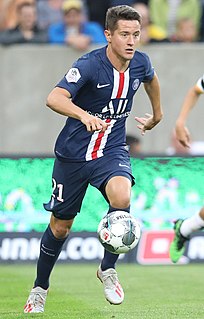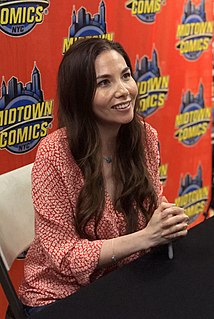A Quote by Cheo Hodari Coker
There aren't a lot of African-American superheroes. I've been reading comics since I was eight or nine years old. Luke Cage stood out.
Related Quotes
Since I started as a comic person then became a musician to me it was interesting because I have this really great, interesting fanbase that's really smart and energetic and uh how could I steer them towards a medium that shaped who I was? You know, steer them toward comics. That was really the goal, to bring a lot of readers cuz they were reading a lot of comics but most of them hadn't been reading American comics, they'd be reading manga sitting on the floor of a Barnes and Noble.
What I like about my character: Luke Cage is a person first and foremost. We do have other black superheroes, but he's important because he's touchable. Luke has moments when he has to try to forget his pain, but then, unlike the rest of us, he's also able to channel that frustration into fighting bad guys. Real martyrs aren't trying to be martyrs.
It's been a long time since I've stood on a stage in London. Was about 14 or 15 years ago, I was 60 years old, just a kid with a crazy dream. Since then I've taken a lot of Prozac, Paxil, Wellbutrin, Effexor, Ritalin, Focalin. I've also studied deeply in the philosophies and the religions, but cheerfulness kept breaking through.
My mother married again after my father's death - another Royal Air Force officer, and a very different kind of man. We went to Australia when I was eight or nine. We lived there for a couple of years, and then came back and lived in North Wales for the whole of my teenage years... I learned how to write poems quite a lot. I just had a good time reading and reading and reading. So that's where I did most of my growing up.
In real life, I knew that fandom was made up of women, and women of color, and women of all ages. But on the publishing side of comics, it was a lot of white, straight men. It was often jarring to me to be the only women at a meeting or at a panel at a comic-con. Fortunately I had mentors who were not blinded by my gender and who said, "Yes, we know you can write these books." That hasn't been the case for everyone. What gives me great hope is that in the eight to nine years since I've started, I've seen tremendous growth.






























